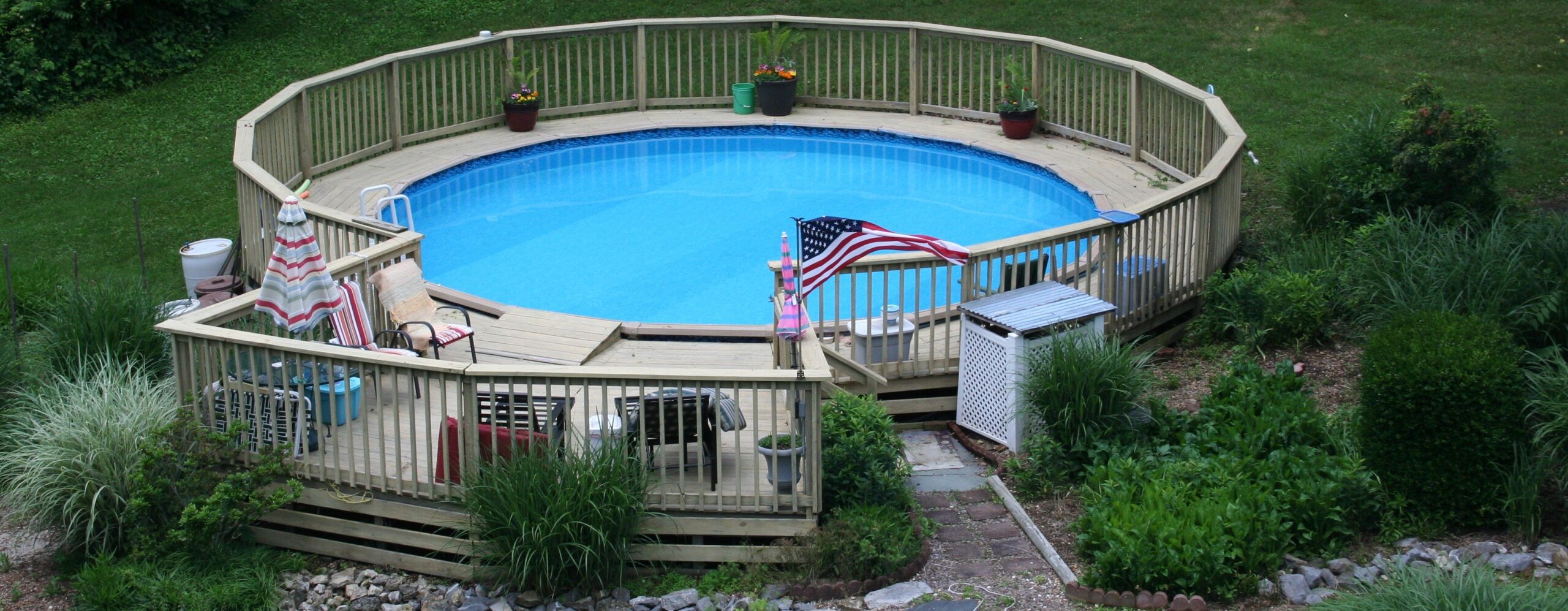Welcome to our comprehensive guide on saltwater pools, where we will dive deep into the world of these increasingly popular swimming pools. Like a gentle tide, saltwater pools have surged in popularity due to their unique qualities and benefits when compared to traditional chlorine pools. In this article, we will navigate the inner workings of saltwater pools, exploring the advantages, maintenance requirements, design considerations, and essential equipment. Whether you are a pool owner or considering a conversion, this guide will provide valuable insights to help you make informed decisions about saltwater pools.
Key Takeaways
- saltwater pools use salt and a chlorine generator to produce chlorine, eliminating the need for traditional chlorine chemicals.
- The components of a saltwater pool system include a salt cell, a control panel, a filter, and a pump.
- Saltwater pools offer benefits such as softer water, reduced skin and eye irritation, and lower maintenance requirements.
- Converting a traditional pool into a saltwater system requires installing a salt cell and adjusting the pool's equipment and maintenance routines.
How Saltwater Pools Work
To understand the functioning of saltwater pools, it is essential to comprehend the chemical and mechanical processes involved in their operation. Saltwater pool systems utilize a process called electrolysis to convert salt into chlorine, which helps sanitize the water. The system consists of several components, including a salt chlorine generator, a salt cell, and a filtration system.
The salt chlorine generator is the heart of the system. It uses a low-voltage electrical current to break down the salt molecules (sodium chloride) in the water and convert them into chlorine gas. This chlorine gas then dissolves in the water, creating a mild and continuous supply of chlorine. The salt cell, which is a part of the generator, contains special electrodes that facilitate the electrolysis process.
The generated chlorine acts as a sanitizer, killing bacteria, algae, and other harmful microorganisms in the pool. Unlike traditional chlorine pools, where chlorine needs to be manually added, saltwater pools maintain a constant level of chlorine through the electrolysis process. This eliminates the need for frequent manual chlorination and reduces the risk of over-chlorination.
The filtration system in a saltwater pool works in conjunction with the salt chlorine generator to keep the water clean and clear. It removes debris, dirt, and other impurities from the water, ensuring a safe and enjoyable swimming experience.
Benefits of Saltwater Pools
Saltwater pools offer numerous benefits for pool owners, and a few of these advantages include improved water quality, reduced maintenance, and enhanced swimmer comfort. One of the main benefits of a saltwater pool is the improved water quality. Unlike traditional chlorine pools, saltwater pools use a salt chlorine generator to produce chlorine from the salt in the water. This results in a more consistent and stable chlorine level, which helps to maintain a cleaner and healthier pool environment.
In addition to improved water quality, saltwater pools also require less maintenance compared to traditional chlorine pools. With a salt chlorine generator, pool owners no longer need to manually add chlorine to the pool on a regular basis. The generator automatically produces the necessary chlorine, reducing the need for constant monitoring and adjustment. This not only saves time but also reduces the cost of purchasing and storing chlorine chemicals.
Furthermore, saltwater pools offer enhanced comfort for swimmers. The lower chlorine levels in saltwater pools are gentler on the skin, eyes, swimwear, and hair. Swimmers are less likely to experience the negative effects associated with high chlorine levels, such as dry skin and itchy eyes. This makes saltwater pools a more enjoyable and comfortable swimming experience for everyone.
Maintenance Requirements for Saltwater Pools
Regular maintenance and proper care are essential for ensuring the longevity and optimal performance of saltwater pools. Saltwater pool maintenance involves several key tasks that should be performed regularly to keep the pool clean, safe, and functioning properly.
One important aspect of saltwater pool maintenance is monitoring and adjusting the salt levels in the pool. The salt chlorine generator, which is responsible for converting salt into chlorine, requires a specific concentration of salt in the water to work effectively. Regular testing of the salt levels is necessary to ensure that they are within the recommended range. If the salt levels are too low, the generator may not produce enough chlorine, leading to inadequate sanitation. Conversely, if the salt levels are too high, it can cause damage to the pool equipment and surfaces.
In addition to salt levels, it is important to regularly check and balance the pH and alkalinity levels of the pool. The ideal pH range for a saltwater pool is between 7.2 and 7.6. Maintaining proper pH levels helps prevent corrosion of pool equipment and surfaces, enhances the effectiveness of chlorine, and ensures optimal comfort for swimmers.
Another crucial maintenance task is cleaning the salt cell. The salt cell is responsible for generating chlorine from the salt in the water. Over time, calcium and other minerals can accumulate on the cell, reducing its efficiency. Regular cleaning of the salt cell is necessary to remove these deposits and ensure the proper functioning of the salt chlorine generator.
Converting a Traditional Pool Into a Saltwater System
When considering the conversion of a traditional pool into a saltwater system, homeowners should evaluate the benefits and potential challenges associated with this upgrade. A saltwater pool conversion involves replacing the traditional chlorine-based system with a salt chlorine generator. This generator uses electrolysis to convert salt into chlorine, which sanitizes the water.
One of the main benefits of a saltwater pool conversion is the reduced need for regular chlorine maintenance. Instead of manually adding chlorine tablets or liquid, homeowners only need to monitor and adjust the salt levels in the pool. This can result in lower annual costs compared to traditional chlorine pools.
In addition to cost savings, saltwater pools are also known for being gentler on the skin, eyes, swimwear, and hair. The lower chlorine levels in saltwater pools reduce the risk of skin and eye irritation, making swimming more enjoyable for individuals with sensitivities. Saltwater pools are also considered to be better for the environment, as they don't require the use of as many harsh chemicals.
However, there are a few potential challenges associated with saltwater pool conversion. The initial cost of installing a salt chlorine generator can be higher compared to traditional chlorine systems. Additionally, saltwater pools can be more corrosive to certain materials, such as metal fixtures or some types of decking. Homeowners should consider these factors when deciding whether to convert their pool into a saltwater system.
Pros and Cons of Saltwater Pools
When considering the pros and cons of saltwater pools, two key points that come to mind are the cost comparison and the health benefits. In terms of cost, saltwater pools may have a higher initial investment and maintenance expenses, but they tend to have lower annual costs compared to traditional chlorine pools. On the health front, saltwater pools are gentler on the skin, eyes, swimwear, and hair, making them a popular choice for those with sensitivities or allergies.
Cost Comparison
The cost comparison of saltwater pools highlights the economic advantages and disadvantages associated with owning and maintaining such systems. While saltwater pools have lower annual costs compared to traditional chlorine pools, they do require a higher initial investment and ongoing maintenance expenses. The main cost-saving factor of saltwater pools lies in the reduced need for chemical additives, as salt chlorine generators produce chlorine from salt dissolved in the water. This eliminates the need to purchase and store chlorine tablets or liquid chlorine. However, saltwater pools may experience potential corrosion issues, which can lead to additional repair and maintenance costs. It is important to consider these factors when evaluating the overall cost of owning and operating a saltwater pool.
Health Benefits
One advantage of owning a saltwater pool is the potential health benefits it offers. Here are three ways in which saltwater pools can contribute to your overall well-being:
- Improved skin and eye health: Saltwater pools use a salt chlorine generator to produce chlorine for pool sanitization. Unlike traditional chlorine pools, the chlorine levels in saltwater pools are lower, reducing the risk of skin and eye irritation. This is especially beneficial for individuals with sensitive skin or allergies.
- Reduced chemical exposure: Saltwater pools rely on salt to produce chlorine, eliminating the need for harsh chemicals. This can lead to a healthier swimming environment, minimizing exposure to potentially harmful substances.
- Easier breathing: The lower chlorine levels in saltwater pools can also make breathing easier, especially for individuals with respiratory conditions such as asthma.
With these health benefits in mind, it's important to consider the lifespan and costs of saltwater pools to make an informed decision about whether they are the right choice for you.
Lifespan and Costs of Saltwater Pools
Importantly, understanding the lifespan and costs associated with saltwater pools is crucial for those considering their installation. Saltwater pools have a longer lifespan compared to traditional chlorine pools, thanks to their gentler sanitization process. On average, a well-maintained saltwater pool can last for 10-15 years, while a traditional chlorine pool typically lasts for 7-10 years. This longer lifespan can result in cost savings in the long run.
When it comes to the costs of saltwater pools, it is important to consider both the initial investment and ongoing maintenance expenses. The initial cost of installing a saltwater pool is higher than that of a traditional chlorine pool. This is mainly due to the additional equipment required, such as a salt chlorine generator and a salt cell. However, the lower annual maintenance costs can help offset the initial investment.
To give you a better idea of the costs involved, here is a table outlining the lifespan and costs of saltwater pools:
| Aspect | Lifespan | Costs |
|---|---|---|
| Saltwater Pool | 10-15 years | Higher initial cost |
| Traditional Pool | 7-10 years | Lower initial cost |
Understanding the lifespan and costs of saltwater pools can help you make an informed decision when considering their installation. While saltwater pools may have a higher upfront cost, their longer lifespan and lower annual maintenance expenses can make them a cost-effective choice in the long term. Now, let's delve into the design considerations for saltwater pools, which play a crucial role in creating a functional and visually appealing swimming environment.
Design Considerations for Saltwater Pools
When designing saltwater pools, it is essential to consider various factors that contribute to the pool's functionality and aesthetic appeal. These design considerations for saltwater pools can help ensure a successful and enjoyable swimming experience:
- Design flexibility: Saltwater pools offer a wide range of design options, allowing you to create a pool that complements your outdoor space. Whether you prefer a traditional or contemporary style, there are design elements that can be incorporated to achieve the desired look.
- Choosing materials that minimize salt residue: Saltwater pools contain higher levels of salt compared to traditional chlorine pools. It is important to select materials that are resistant to corrosion caused by salt exposure. This includes choosing pool finishes, decking materials, and equipment that can withstand the corrosive effects of salt.
- Enhancing the design with natural-looking landscaping: To create a cohesive and visually appealing pool area, consider incorporating natural-looking landscaping elements. This can include adding plants, rocks, or water features that blend seamlessly with the pool design. Natural elements can help create a relaxing and inviting atmosphere.
When designing a saltwater pool, it is crucial to consider these design considerations to ensure the pool's functionality, durability, and aesthetic appeal. By incorporating design flexibility, choosing materials that minimize salt residue, and enhancing the design with natural-looking landscaping, you can create a saltwater pool that not only meets your needs but also enhances the overall beauty of your outdoor space.
Equipment and Components of Saltwater Pools
What are the essential equipment and components of saltwater pools? Saltwater pool equipment includes salt chlorine generators, filters, and salt cells. These components work together to maintain the cleanliness and sanitization of the pool water.
The salt chlorine generator is the heart of a saltwater pool system. It converts salt into chlorine through a process called electrolysis, eliminating the need for traditional chlorine tablets or liquid. This generator consists of a control panel and a cell that contains metal plates.
Types of salt suitable for saltwater pools include pool-grade salt, which is free of additives and dissolves easily. It is important to use the correct amount of salt to maintain the water's salinity level within the recommended range.
Filters are another crucial component of saltwater pools. They remove debris and contaminants from the water, keeping it clean and clear. Common types of filters used in saltwater pools include sand filters, cartridge filters, and diatomaceous earth (DE) filters. Regular maintenance and cleaning of the filters are necessary to ensure optimal performance.
The salt cell is responsible for the electrolysis process in the salt chlorine generator. It consists of metal plates that create the chlorine when an electric current is passed through them. Regular maintenance, such as cleaning and inspecting the cell, is necessary to prevent scaling and prolong its lifespan.
Regular maintenance and cleaning of all the equipment and components are essential to keep a saltwater pool running smoothly. This includes checking and adjusting the salt levels, cleaning the filters, and inspecting the salt cell. By properly maintaining the equipment and components, saltwater pool owners can enjoy a clean and refreshing swimming experience.
| Equipment/Component | Function | Maintenance Requirements |
|---|---|---|
| Salt Chlorine Generator | Converts salt into chlorine for sanitation | Regular cleaning of the cell, checking salt levels |
| Filters | Removes debris and contaminants from water | Regular cleaning and replacement of filter media |
| Salt Cell | Electrolysis process to produce chlorine | Periodic cleaning and inspection for scaling or damage |
Frequently Asked Questions
Can I Convert My Traditional Chlorine Pool Into a Saltwater System?
Yes, it is possible to convert a traditional chlorine pool into a saltwater system. This conversion involves installing a salt chlorine generator, which uses electrolysis to convert salt into chlorine. The existing pool equipment, such as the pump and filter, can usually be retained. However, it is important to consult with a professional to ensure that the pool is suitable for conversion and to properly balance the salt levels and maintenance requirements.
How Often Do I Need to Clean and Maintain the Salt Cell in a Saltwater Pool?
The salt cell in a saltwater pool requires regular cleaning and maintenance to ensure its proper functioning. The frequency of cleaning will depend on several factors such as the size of the pool, usage, and environmental conditions. As a general guideline, it is recommended to clean the salt cell every 3-6 months. This involves removing the cell from the system, inspecting for any debris or scale buildup, and cleaning it with a mild acid solution. Regular maintenance of the salt cell will help optimize its performance and prolong its lifespan.
What Type of Filters Are Commonly Used in Saltwater Pools?
Commonly used filters in saltwater pools include sand filters, cartridge filters, and diatomaceous earth (DE) filters. Sand filters are the most common and cost-effective option, using a bed of sand to trap particles and debris. Cartridge filters are known for their high filtration efficiency and easy maintenance. DE filters provide the highest level of filtration, using a fine powder to capture even the smallest particles. Each filter type has its own advantages and considerations, so it's essential to choose the one that best suits your pool's needs.
Are There Any Specific Design Considerations I Should Keep in Mind When Building a Saltwater Pool?
When building a saltwater pool, there are several design considerations to keep in mind. Firstly, it is important to choose materials that minimize salt residue, as this can cause damage over time. Additionally, enhancing the design with natural-looking landscaping can create a more aesthetically pleasing environment. Furthermore, considering the chemical properties of salt in the pool's construction is crucial for long-term durability. By taking these factors into account, you can create a beautiful and functional saltwater pool that will provide enjoyment for years to come.
What Are the Different Types of Salt Suitable for Use in Saltwater Pools?
There are different types of salt suitable for use in saltwater pools. The most common type is pool salt, also known as sodium chloride. It is specifically designed for use in swimming pools and is readily available. Another type is sea salt, which is derived from evaporated seawater and contains natural minerals. However, it is important to ensure that sea salt is properly purified before using it in a pool. It is recommended to consult with a pool professional to determine the best type of salt for your specific pool.



